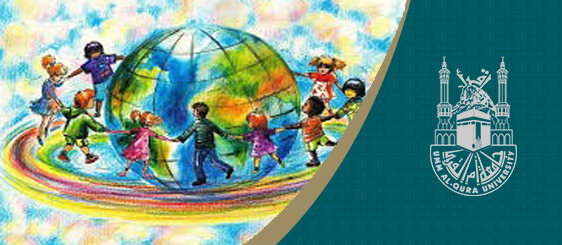Umm Al-Qura University
- Libraries Department


As childhood is one of the important and main phases in building one's personality in a positive or a negative way, according to what one would receive of care, Islam came fourteen decades before issuing rights to determine that these children have rights and duties that cannot be disregarded or ignored.
Once the child is born, he/she has the right to be welcomed; have Quran recited in his/her ears; get Tahneek, which is the practice of softening a date and rubbing a bit of it on the hard palate of the newborn's mouth with a clean finger; have his/her hair cut; donate his/her weight in gold/silver to the poor; have a meaningful Muslim name; have an Aqiqah, which includes slaughtering one or two sheep or goats by the parents as a sacrifice; be breastfed; be circumcised; get nursing; have child support; and get right Islamic education.
Moreover, Islam took into consideration a number of education types, including faith, physical, moral, mental and social education.
The ways of education adopted by Islam included the education by observation and indications; by preaching and guidance; by habits; and by coercion and inducement.
كما أن من وسائل التربية الإسلامية كذلك التربية بالقدوة، والتربية بالجليس الصالح، والإفادة من العلم الحديث ومخترعاته، والإفادة من الدوافع الفطرية...
Islamic education also included education by the model role; by the good company; by benefiting from modern science and its innovations; and by benefiting from the inherent motives.
Child's Rights:
Websites and university theses to benefit from:
Ms. Maha Bouqes – Public Relations – Gils Section